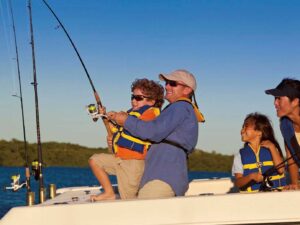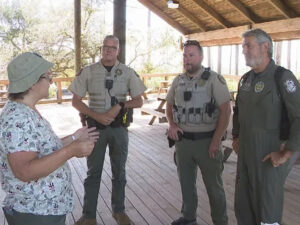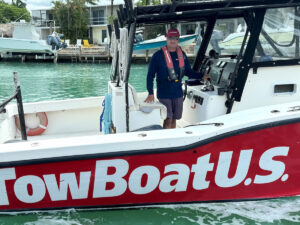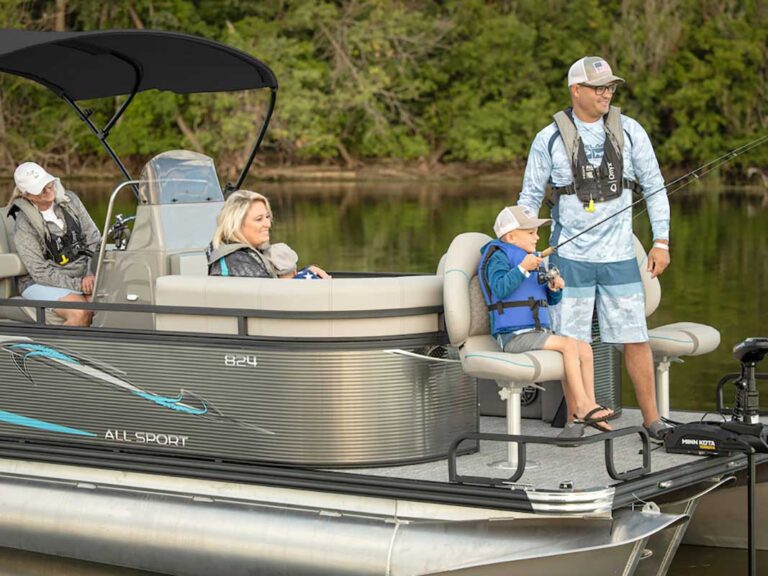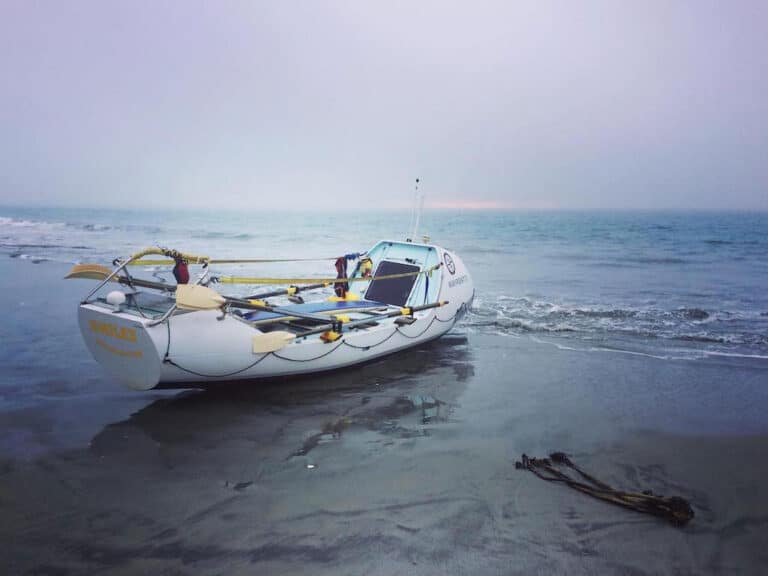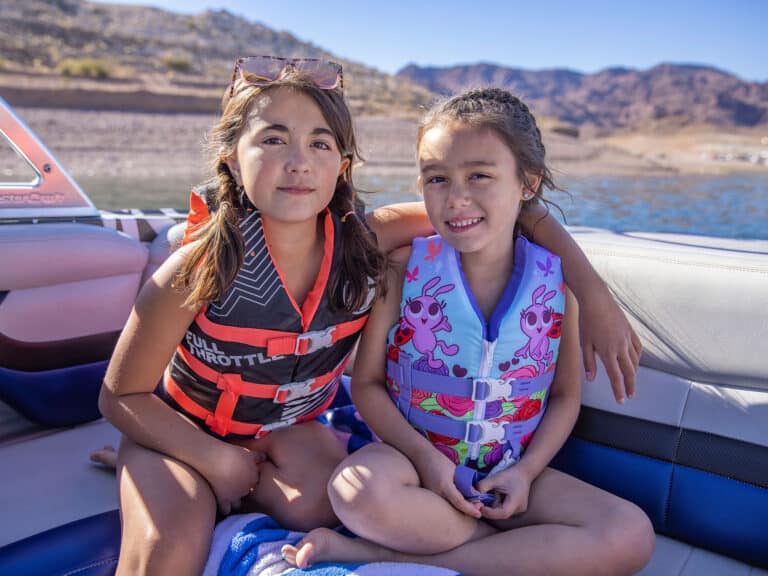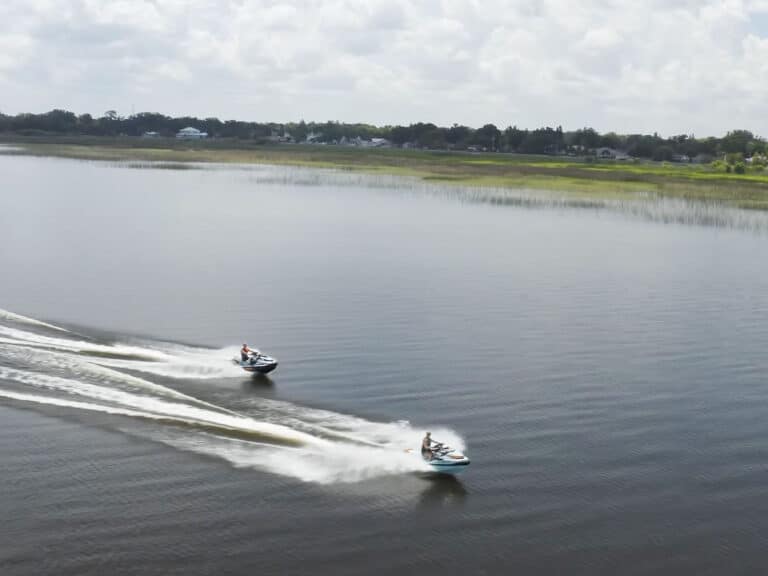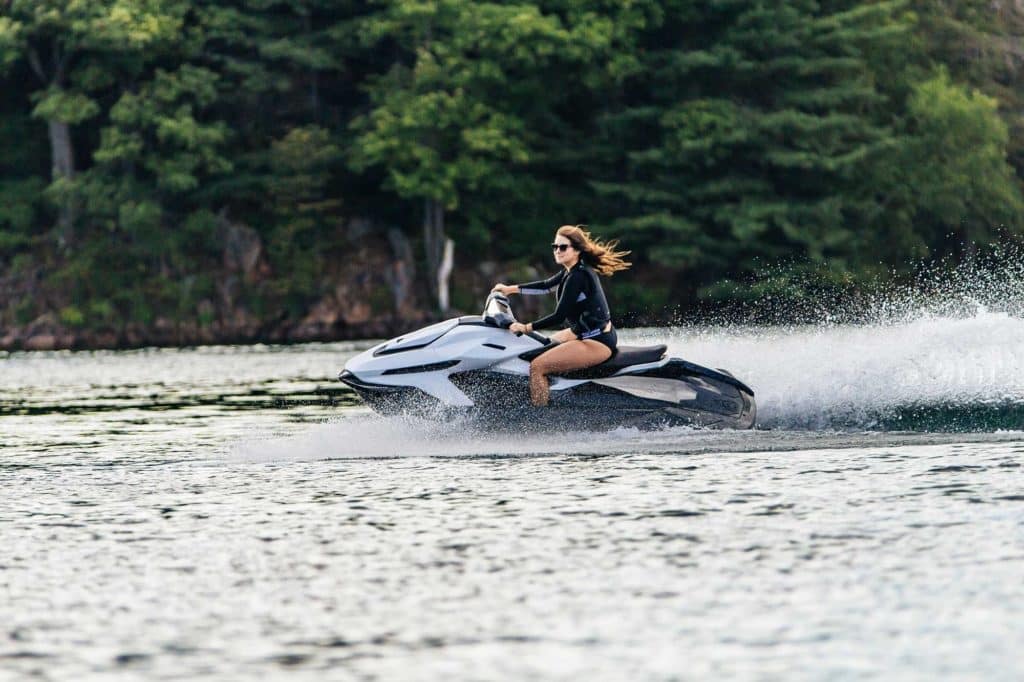
A personal watercraft is a powerboat, even if it’s fast, nimble and, yeah, personal, like a motorcycle or snowmobile. As a PWC operator, you must follow all general boating laws and regulations, as well as some rules and tips specific to PWCs.
People stand, kneel or sit on a jet-pump-powered PWC such as a Sea-Doo, Yamaha WaveRunner or Kawasaki Jet Ski instead of riding inside as they would on a regular boat. One person drives, but a PWC can often seat others too.
You steer by directing the pump-pressurized water that shoots out the back. Importantly, maneuverability stops when you release the throttle or turn off the engine, whether intentionally or accidentally.
Headed toward a hazard? Fight the instinctive urge to release the throttle or pull the cutoff lanyard—without power, there is no control as the boat coasts toward trouble. Keep the throttle depressed and the pump pumping, whether you’re turning in normal use or in an emergency.
(Note: On certain newer models, rudders provide some steering control when the moving boat’s propulsion has stopped. Still, it’s best to keep the jet doing its thing and maintain what sailors call steerageway, or the ability to turn.)
Dress smart. PWC drivers and riders, including anyone towed, should wear torso-protecting life jackets. The driver should attach the emergency engine-cutoff lanyard to their wrist or life jacket before firing up the engine.
PWCs seem made for jumping wakes, but don’t do it, especially near other boats. Other don’t-do-its? Don’t pass right in front of or weave between other boats, whether moving or moored. Ditto for crossing between any boat and a towed tuber or skier, or steering toward an object or person and veering away at the last minute to give them a good spraying. Don’t irritate neighbors by hot-dogging too long in front of their place. And while PWCs are easy to spin at speed, passengers could be thrown off.
Practicing emergency turns is smart and fun. Just make sure to find a safe area in which you can master properly maneuvering your ride.
PWCs, swift and stunningly maneuverable at speed, are clumsier at slow speeds and when docking. Take it easy.
If you’re pulling someone on skis, a board or a tube—which is a blast—make sure you have a spotter, and remember that the force of your towed friend’s sweeping turn can make it difficult for you to control the PWC.
Ever wonder why PWCs don’t come with navigation lights? It’s because it’s illegal to operate them between sunset and sunrise, and some states are even more restrictive.
We weren’t born ready to operate a PWC, and most states have minimum ages for PWC operators and/or boat safety education requirements. Check with your state’s boating office. Safety classes are good for every age, by the way, especially since PWC accidents are often blamed on operator inexperience or inattention.
Want to play it extra safe (and smart) on your PWC? Wear strapped sunglasses or goggles, soft-soled shoes or water socks for protection and onboard traction, and a wetsuit to protect against cold water and hard seat-first water landings.
Then get out and have some PWC fun!
The U.S. Coast Guard is asking all boat owners and operators to help reduce fatalities, injuries, property damage, and associated healthcare costs related to recreational boating accidents by taking personal responsibility for their own safety and the safety of their passengers. Essential steps include: wearing a life jacket at all times and requiring passengers to do the same; never boating under the influence (BUI); successfully completing a boating safety course; and getting a Vessel Safety Check (VSC) annually from local U.S. Coast Guard Auxiliary, United States Power Squadrons®, or your state boating agency’s Vessel Examiners. The U.S. Coast Guard reminds all boaters to “Boat Responsibly!” For more tips on boating safety, visit www.uscgboating.org.

